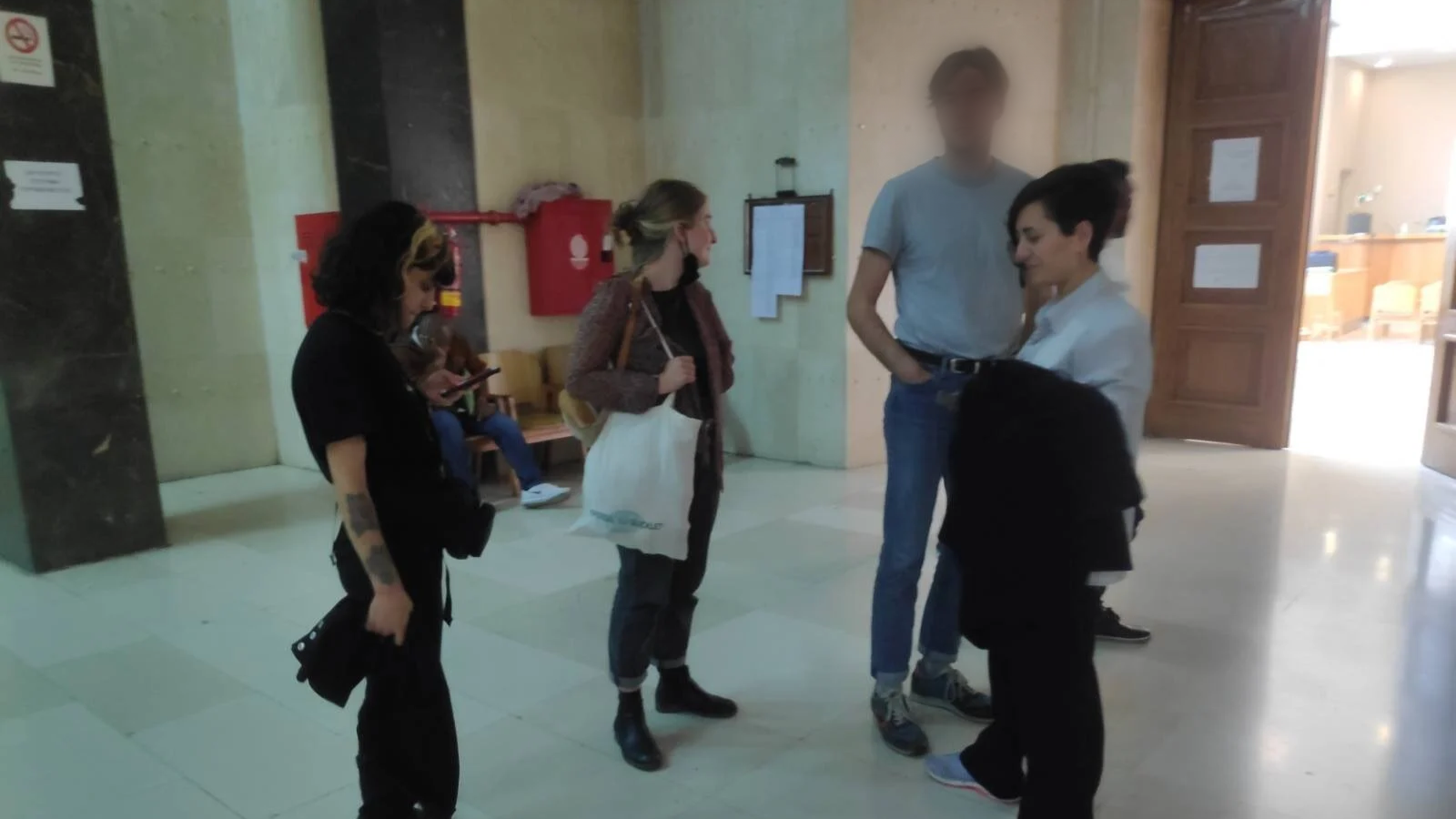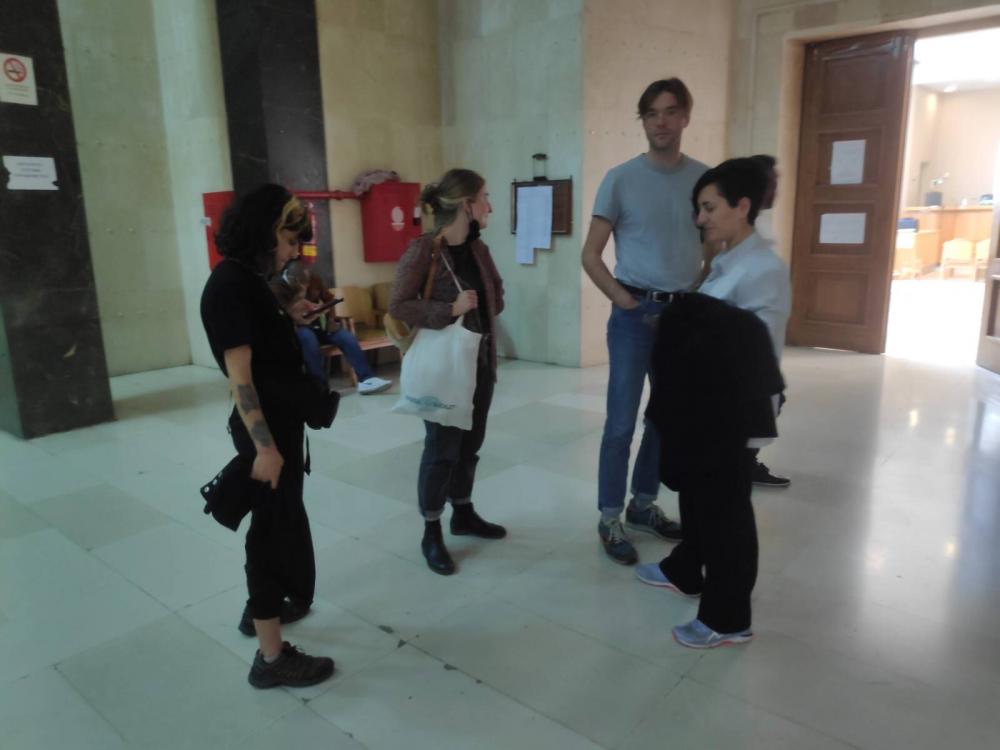Greece: Father sentenced to 18 years in prison for driving car with refugees
On 26.9.2022, the trial of H. Sabetara took place in Thessaloniki, Greece, after it had already been postponed for the fourth time. At that time, the now 59-year-old father from Iran had already spent almost a year in pre-trial detention in the notorious Korydallos prison in Athens. Despite the testimony of his daughters, who had travelled from Berlin to testify, Sabetara was found guilty of smuggling and sentenced to 18 years in prison.
Sabetara had been arrested in September 2021 in north-eastern Greece and subsequently charged with "smuggling" for being at the wheel of the car in which he had driven from the Evros towards the interior of the country together with seven other people. Sabetara had wanted to follow his two daughters to Berlin. In view of the increasingly difficult political situation, they had left Iran one after the other with the help of a student visa and have been living in Berlin since 2018 and 2021 respectively.
For their father and widower, H. Sabetara, however, there was no legal and safe way to get to Germany, which is why he entrusted himself to a smuggler. Since Sabetara had no money for the onward journey, after crossing the Turkish-Greek border he drove the car provided into the interior of the country (more info on the story).
After months of waiting, he had already been transferred to Thessaloniki for the first time mid of May for the trial, only to learn the day before the scheduled date that it would not take place. This happened twice more until the fourth date on 26 September actually took place. A further strain in an already extremely emotionally draining situation for Sabetara himself as well as for his two daughters, who had travelled to Thessaloniki for all four trial dates, only to return three times "undone", anxious as to when a decision would be made in their father's case.
The trial on 26 September began at 10 a.m. Greek time with the testimony of the prosecution's only witness, as is very common in such trials, a police officer who was present when Sabetara was arrested, but who remembered little and gave contradictory statements. This was followed by a motion by the defence not to read out and take into account another statement against the accused that was in the indictment. This was a statement by another passenger, which, however, had not been lawfully obtained in accordance with the provisions of the Code of Criminal Procedure. The application was rejected, in clear violation of the right to a fair trial under Article 6 of the European Convention on Human Rights.
Next, one of Sabetara's daughters was called to the witness stand as a so-called "character witness", who recounted his past and situation in Iran and supported this extensively with documents and files, corroborating her father's story that he's not part of organised crime but had been on his way to them in Berlin.
Then Sabetara himself was heard, who repeated his version of the story and testified that he had taken the wheel because he had no money to pay for the onward journey. At the end, the defence made its closing argument, sharply criticising the criminalisation of people on the move.
Nevertheless, after two hours of trial, Sabetara was found guilty on all charges, specifically of "unauthorised transport of seven third-country nationals into Greek territory" (smuggling), with the aggravating circumstances of "acting for profit" and "endangering the lives of three people" (three people had been hiding in the boot). On a positive note, based on the daughter's testimony and the documents submitted, the former "moral life" was recognised as a mitigating factor. The final sentence was therefore six years per transported person, which according to Greek calculation resulted in a prison term of 18 years.
The defence appealed against the sentence on the same day. However, the appeal will most likely not take place before the end of 2023. In the meantime, Sabetara will not be released and must remain in prison.
The case of H. Sabetara is unfortunately not an isolated case but paradigmatic for yet another facet of Europe's policy of closing borders and deterrence. As documented by CPT - Aegean Migrant Solidarity, borderline-europe and Deportation Monitoring Aegean, the filing of such charges against migrants arriving in Greece has been systematically used by the Greek state for several years.
The basis for this is Greek legislation that considers any person found to have driven a vehicle across Greek borders carrying people seeking protection as a smuggler. The arrests that follow these often-unfounded accusations of smuggling are arbitrary, and the trials flout basic standards of fairness. Police officers might accuse the person holding the tiller to steer the boat, or the one who communicated with the coast guard to call for help, or simply someone who speaks English, of being a smuggler. Without sufficient evidence, they are usually arrested upon arrival and kept in pre-trial detention for months. When their case finally comes to court, their trials average only 38 minutes in length, leading to an average sentence of 44 year.
While “smuggling” accusations against European sea rescuers gain a lot of media attention, the everyday practice of incarcerating non-Europeans goes almost unnoticed. However, it is they who constitute the majority of those being arrested and imprisoned on allegations of "smuggling" and "facilitatin unauthorized immigration".
We will continue to support H. Sabetara and his family in the appeal trial and in the meantime!
We demand the immediate release of H. Sabetara from prison, freedom for all those arrested for driving a boat or car, and an end to the criminalisation of migration and the imprisonment of people on the move!
Please support our anti-criminalisation work. Only with your help can we organise lawyers for those affected and finance the legal costs: https://www.betterplace.org/en/projects/79969-united-against-criminalisation-of-flight-and-migration
Trial report by Julia Winkler, borderline-europe
Background info:
- borderline-europe: Greece: Because a 58-year-old father wanted to join his daughters in Berlin, he now faces 100 years in prison
- Deutschlandfunk: Vom Mittelmeer ins Gefängnis - Wie Geflüchtete zu Schleppern gemacht werden
- Radio RaBe: Raus aus dem Regime - Rein in den Knast
More info:
- Aegean Migrant Solidariy, borderline-europe and Deportation Monitoring Aegean: Incarcerating the Marginalised - The Fight Against Alleged "Smugglers" on the Greek Hotspot Islands
Thursday, 27 October 2022
©Photos, borderline-europe


